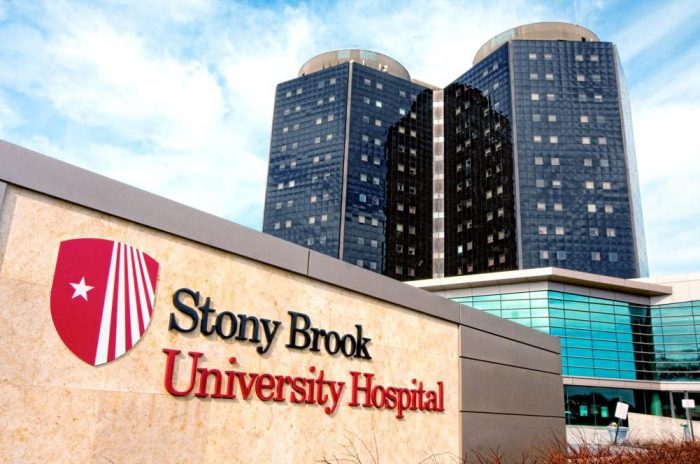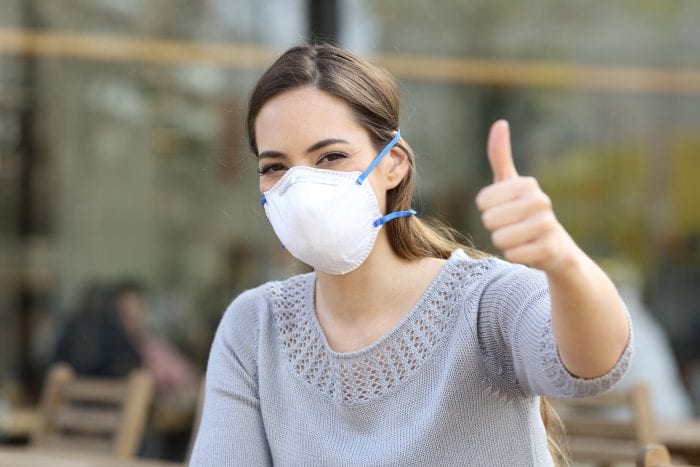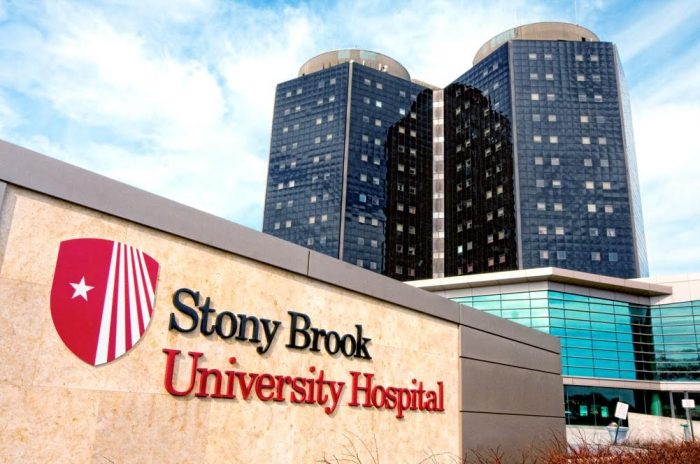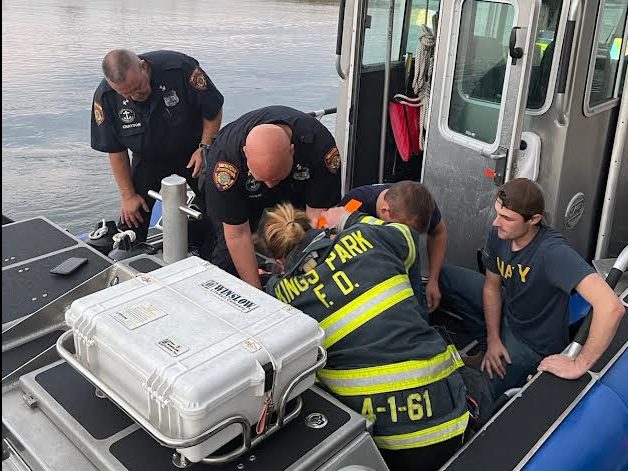Stony Brook University Hospital (SBUH) has been recognized by the U.S. Department of Health and Human Services (HHS) at the 2022 United Nations Climate Change Conference (COP27) for pledging ongoing action to decarbonize the health care sector and make health care facilities more resilient to the effects of climate change. SBUH has formally committed to pursuing the White House’s climate goal of reducing emissions by 50 percent by 2030 and achieving net zero emissions by 2050 and has already begun:
“I’m delighted that Stony Brook University Hospital has signed on to the White House/HHS Health Sector Climate Pledge as we continue to be recognized locally and nationally as a leader in sustainability efforts,” said Hal Paz, MD, Executive Vice President for Health Sciences, Stony Brook University and Chief Executive Officer, Stony Brook University Medicine. “We remain focused on these initiatives and accelerating the health system’s progress toward a climate-conscious approach to care.”
“At Stony Brook University Hospital, we have made it our mission to support sustainable healthcare initiatives and reduce our carbon footprint,” says Carol Gomes, MS, FACHE, CPHQ, CEO of Stony Brook University Hospital. “We look forward to working with the Department of Health and Human Services to continue to make environmental changes that benefit not only our planet, but also our patients, employees and communities for years to come.”
A September 2021 consensus statement from more than 200 medical journals named climate change the number one threat to global public health. It exposes millions of people in the United States to harm every year—with disproportionate impacts on historically disadvantaged communities—through increases in extreme heat waves, wildfires, flooding, vector-borne diseases and other factors that worsen chronic health conditions. The healthcare sector also contributes to climate change, accounting for approximately 8.5 percent of U.S. domestic emissions.
The HHS Office of Climate Change and Health Equity (OCCHE), part of the Office of the Assistant Secretary for Health, developed the White House/HHS Health Sector Climate Pledge to help focus industry response to climate challenges. In addition to reducing their carbon footprint, signatories also commit to producing detailed plans to prepare their facilities for both chronic and acute catastrophic climate impacts.
One hundred and two prominent health companies in the U.S. have signed the White House/HHS Health Sector Climate Pledge, including organizations representing 837 hospitals as well as leading health centers, suppliers, insurance companies, group purchasing organizations, pharmaceutical companies, and more. Federal systems like the Indian Health Service (IHS), Veterans Health Administration (VHA), and Military Health System (MHS) are working together to meet similar goals to those the private sector organizations have embraced. Combined, over 1,080 federal and private sector hospitals have made such commitments, representing over 15 percent of U.S. hospitals.
“HHS returns this year to COP27 to report great progress,” said Admiral Rachel Levine, Assistant Secretary for Health for the Department of Health and Human Services. “Through the efforts of the Office of Climate Change and Health Equity and several other HHS agencies, we have made significant strides in introducing resources and support to help communities and care providers accelerate their work to reduce harmful emissions and increase climate resilience in the health sector.”
This year, SBUH was also named among the Top 25 in the nation for Environmental Excellence, which is the highest honor awarded by Practice Greenhealth. The hospital was previously honored for Environmental Excellence in 2021 and presented with the Top 25 award in 2020.
For more information about how Stony Brook University Hospital is responding to our nation’s climate challenges, visit stonybrookmedicine.edu/














